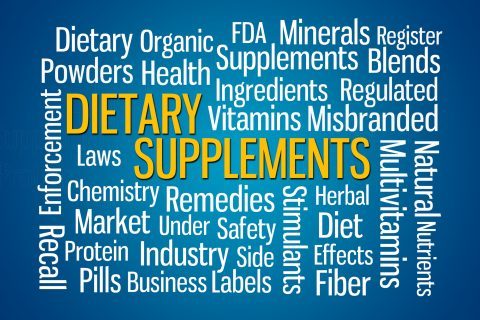Is it safe to take dietary supplements, and which ones are recommended?
Dietary supplements have become increasingly popular as people seek ways to improve their health and well-being. From vitamins and minerals to herbal extracts and protein powders, there’s a wide array of supplements available on the market. But are they safe, and which ones are truly beneficial? In this article, we’ll delve into the safety considerations of dietary supplements and highlight some recommended options backed by scientific evidence.
Understanding Dietary Supplements:
Dietary supplements are products intended to supplement the diet and provide nutrients that may be lacking or insufficient in one’s regular diet. They come in various forms, including capsules, tablets, powders, and liquids, and can contain vitamins, minerals, herbs, amino acids, enzymes, and other substances.

Safety Considerations of Dietary Supplements:
While many dietary supplements are safe when taken as directed, it’s essential to be cautious and informed when selecting and using them. Here are some safety considerations to keep in mind:
- Quality and Purity: Choose supplements from reputable manufacturers who adhere to strict quality control standards. Look for products that have been tested by third-party organizations for purity, potency, and safety.
- Dosage and Instructions: Follow the recommended dosage and instructions provided on the supplement label or as directed by a healthcare professional. Avoid exceeding the recommended dose, as this can increase the risk of adverse effects.
- Potential Interactions: Some supplements may interact with medications or other supplements, leading to adverse effects or reduced effectiveness. Consult with a healthcare provider before starting any new supplement regimen, especially if you are taking prescription medications or have underlying health conditions.
- Side Effects: While most dietary supplements are well-tolerated, some individuals may experience side effects such as digestive upset, allergic reactions, or interactions with medications. Discontinue use and consult a healthcare provider if you experience any adverse reactions.
- Long-Term Use: Use caution with supplements that are intended for long-term use, as their safety and efficacy over extended periods may not be well-established. Periodically reassess your supplement regimen and adjust as needed based on changes in health status and dietary habits.

Recommended Dietary Supplements:
While individual needs may vary based on factors such as age, gender, health status, and dietary habits, some dietary supplements have been extensively studied and shown to provide notable health benefits. Here are some commonly recommended options:
- Multivitamins: Multivitamin supplements provide a combination of essential vitamins and minerals that support overall health and fill potential nutrient gaps in the diet.
- Omega-3 Fatty Acids: Omega-3 supplements, particularly those containing eicosapentaenoic acid (EPA) and docosahexaenoic acid (DHA), are known for their anti-inflammatory properties and cardiovascular benefits.
- Vitamin D: Many people have insufficient vitamin D levels, especially those who live in regions with limited sunlight exposure. Vitamin D supplements can help support bone health, immune function, and mood regulation.
- Probiotics: Probiotic supplements contain beneficial bacteria that support digestive health and may help maintain a healthy balance of gut microbiota. They may also have immune-modulating effects.
- Calcium: Calcium supplements are recommended for individuals who may not get enough calcium from their diet, particularly women at risk for osteoporosis and older adults.
While dietary supplements can be beneficial for certain individuals, it’s essential to approach them with caution and make informed decisions about their use. By considering safety considerations, choosing high-quality products, and focusing on supplements with proven benefits, you can incorporate them into your health regimen effectively.
Also Read :
- Effective Strategies for Managing Chronic Pain: A Comprehensive Guide
- Coping Strategies for Anxiety and Depression: Practical Techniques for Mental Well-being
- What is the best diet for weight loss?
- 10 Soothing Yoga Poses for Stress Relief
- Mastering Stress: Effective Techniques for Americans to Find Balance
- Stress Less: Effective Strategies for Managing and Reducing Everyday Stressors
- Unlocking the Power of Quality Sleep: Strategies for Better Mental Health
- A Comprehensive Guide to Carbohydrates, Proteins, and Fats : Demystifying Macronutrients
- Embracing Plant Based Living: Tips and Delicious Recipes for a Vibrant Diet
Focused Keywords: Dietary supplements safety, Recommended dietary supplements, Are dietary supplements safe, Dietary supplements benefits, Safe dietary supplements


I am genuinely amazed with your profound understanding and stellar way of expressing complex ideas. Your depth of knowledge clearly stands out in every sentence. It’s clear that you spend considerable time into researching your topics, and that effort pays off. Thank you for sharing such valuable insights. Continue the excellent job!